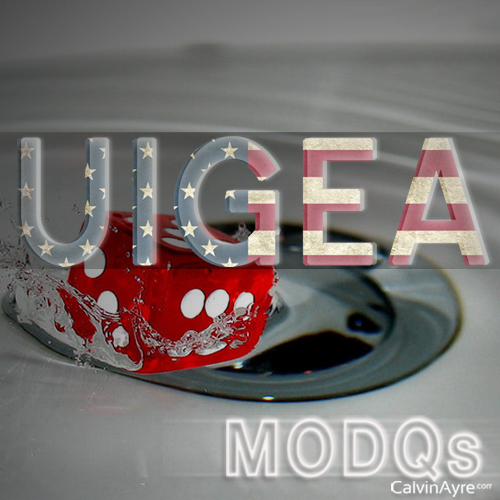 Ten years ago was something of a golden age for online gambling operators. Board members and executives alike sat around lighting cigars off $50 notes. Unfortunately that didn’t last all that long with the clamping down on allegedly illegal iGaming gathering pace over the years.
Ten years ago was something of a golden age for online gambling operators. Board members and executives alike sat around lighting cigars off $50 notes. Unfortunately that didn’t last all that long with the clamping down on allegedly illegal iGaming gathering pace over the years.
Among the more high profile events are UIGEA, Black Friday and numerous indictments, raids and the seizure of Internet properties. Some operators took their leave quietly; others were dragged out kicking and screaming while a plucky few are still there – making hay while the grey sun shines.
But regulated online gambling is now taking place in the United States and much more is on its way. Eventually, we may even see a marketplace that finally fulfills the prophecies that label it to be the most lucrative online gambling market in the world. The question on everyone’s lips right now is who is going to be there to take advantage of it.
We’re seeing that US land-based gambling companies are obviously going to have a say in the matter but they’re all ill-equipped to do so on their own. As a result they’re turning to online operators in joint ventures, partnerships and every other kind of deal possible. It’s these ventures and the odd pureplay operator that’s going to be able to capitalise in the Land of Opportunity.
But for so many online gambling companies, this won’t be their first foray into the North American iGaming market. So how will the impression that they left with impact their route back into the country’s regulated landscape?
UIGEA Exits
Although there was always an awareness that online gambling in the US wasn’t strictly kosher, many of the companies that operated within the space before UIGEA maintain that they broke no laws.
One such company is 888 whose CEO Brian Mattingley is convinced that the fact that his company left the US so quickly following UIGEA will be vital in their gradual return to the country.
He explains: “I think we did it absolutely correctly. Once UIGEA was announced with 24-48 hours we were out. We had been given six or nine months to unwind and move out but within 48 hours we had closed down and were refunding our US customers.”
“It was key to our re-entry and I don’t believe that we ever committed any crime within the US. We never coded our transactions, we never took sports bets and everything we did we did in good faith and believed that we were acting reliably and honestly. As a result we’ve never admitted any liability to the DOJ and I feel completely vindicated for that purpose.”
Gambling lawyer Stuart Hoegner is of the same opinion that those who showed a willingness to be as subservient to the US government as possible are now those best placed to reap the benefits of a regulated market.
“Several companies appear to be in good shape and seem to have the resources to do very well in a regulated US marketplace,” he explains. “I don’t want to comment on any particular corporation or brand, but the more efforts that any particular business has made to respect the laws of the United States, the easier time they’re going to have getting licensed in the US.”
Riskier Approaches
While those companies that wanted to appear whiter than white swiftly exited the US following UIGEA, others continued to operate successfully until Black Friday showed them that the US DOJ was no longer simply making idle threats.
However, Professor I. Nelson Rose explains that legally there really isn’t much difference between the two. He says: “The ones that are questionable are the ones that used to take bets from the US. Even though legally there isn’t much difference between those who pulled out before UIGEA was passed and those who continued until recently, there is a different in the minds of lawmakers and regulators so bwin.party is much more likely to be able to get a licence than PokerStars which only pulled out after Black Friday.”
bwin.party is a particularly interesting case as PartyGaming had their fair share of trouble with US regulators before Anurag Dikshit settled with the US Department of Justice in December 2008. While on paper the settlement means that PartyGaming and effectively bwin.party has a clear name, the slate is unlikely to be far from clean. In the minds of the regulators there will still be a prejudice against them because by making the settlement Dikshit effectively admitted that they had broken US laws and were able to buy their way out of it.
Despite this, Professor Rose thinks that bwin.party will still be able to get licensed in the US.
“They [bwin.party] certainly don’t have the problem that PokerStars have”, he explains. “The biggest problem that they have is that they’re not local operators so they can’t get a licence in New Jersey unless they buy a casino like PokerStars tried. In some states they’ll be able to get a licence otherwise they’ll need to be a supplier or get involved in some sort of joint venture.”
Hoegner adds that UIGEA could well play as large a part in a regulated landscape as it did in the deregulated market. He says: “Some may find the 2006 benchmark (when UIGEA was passed) arbitrary, but it seems to hold some relevance for US policy makers, so we have to pay attention to it.”
